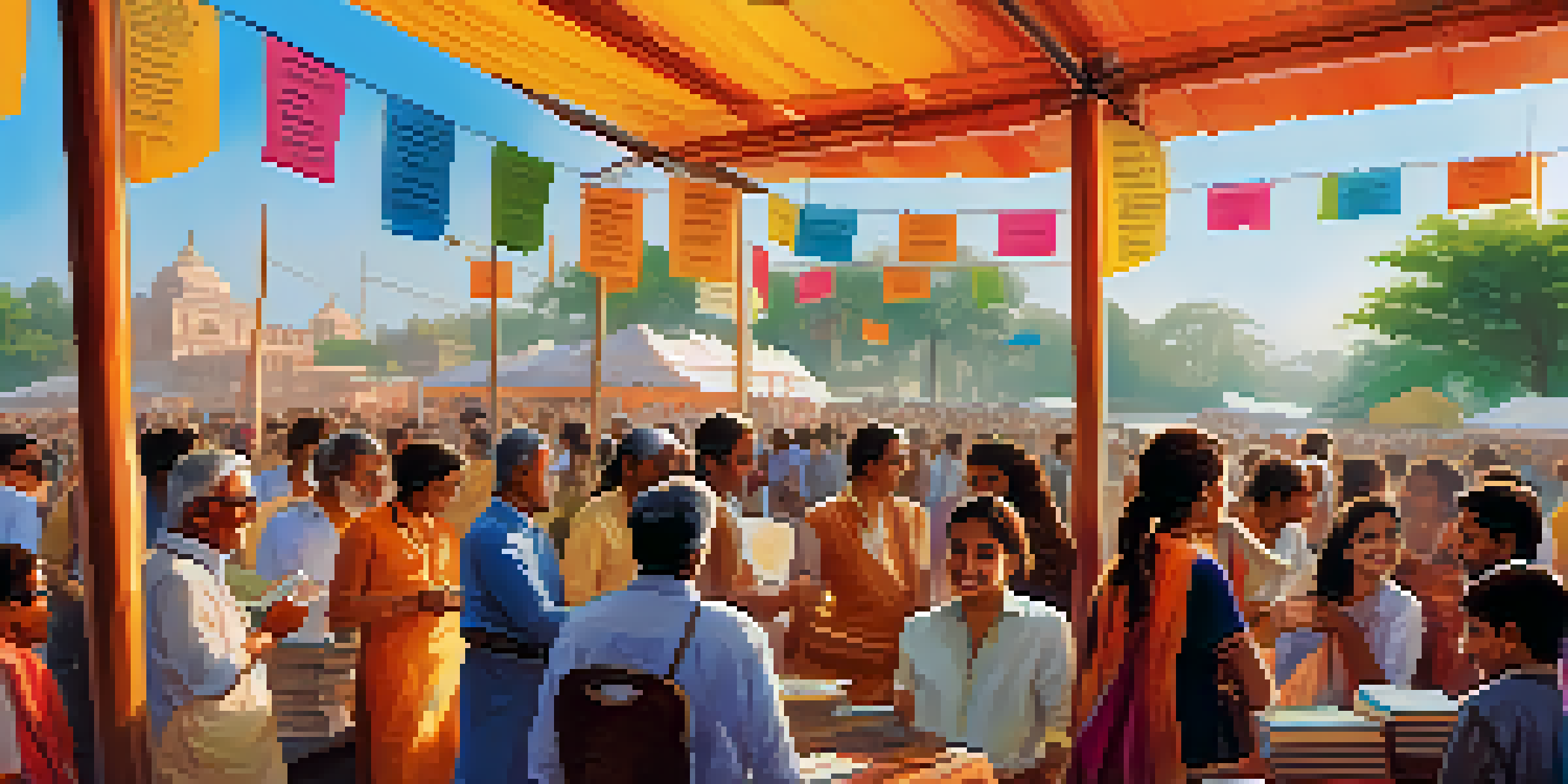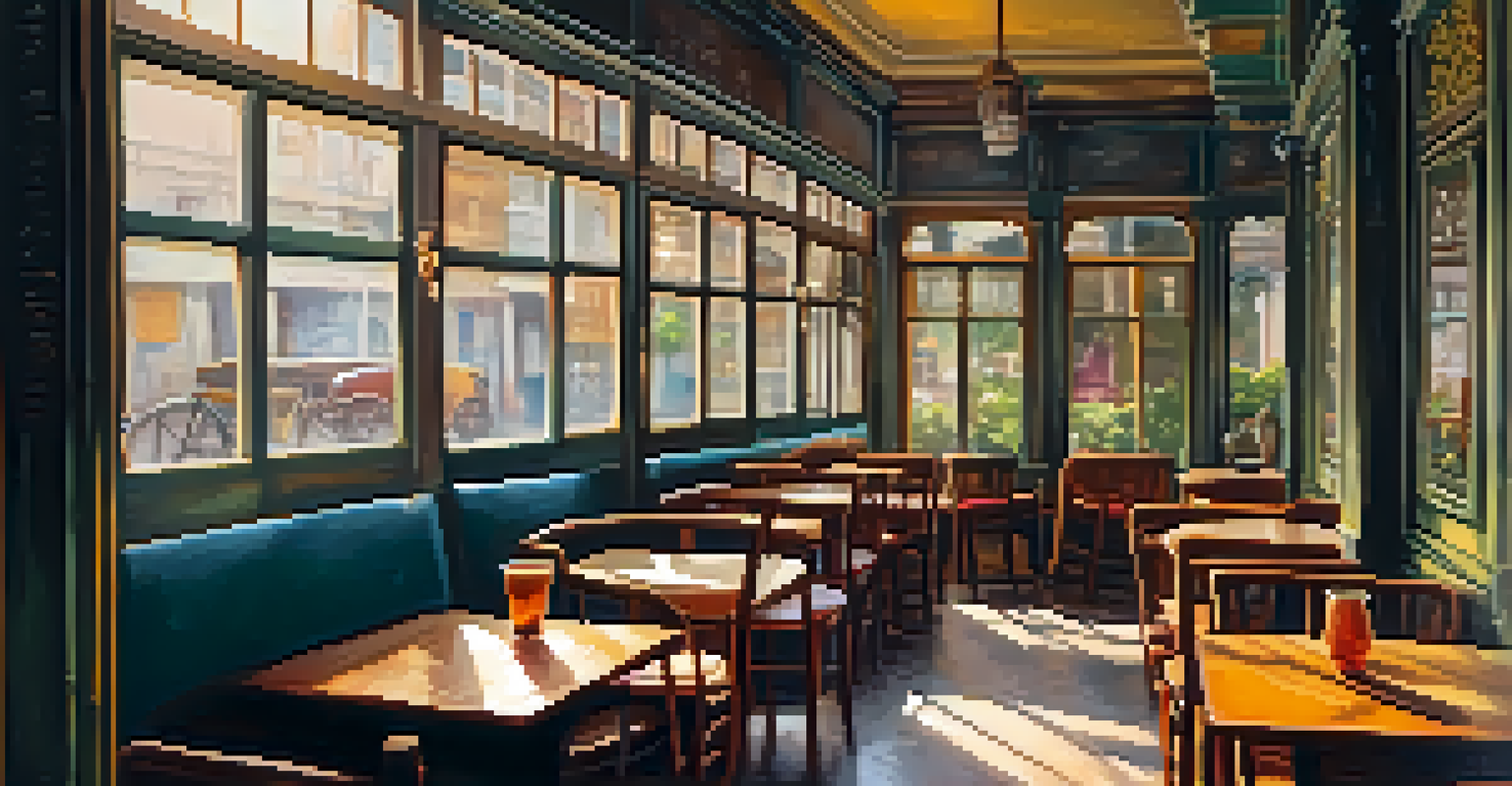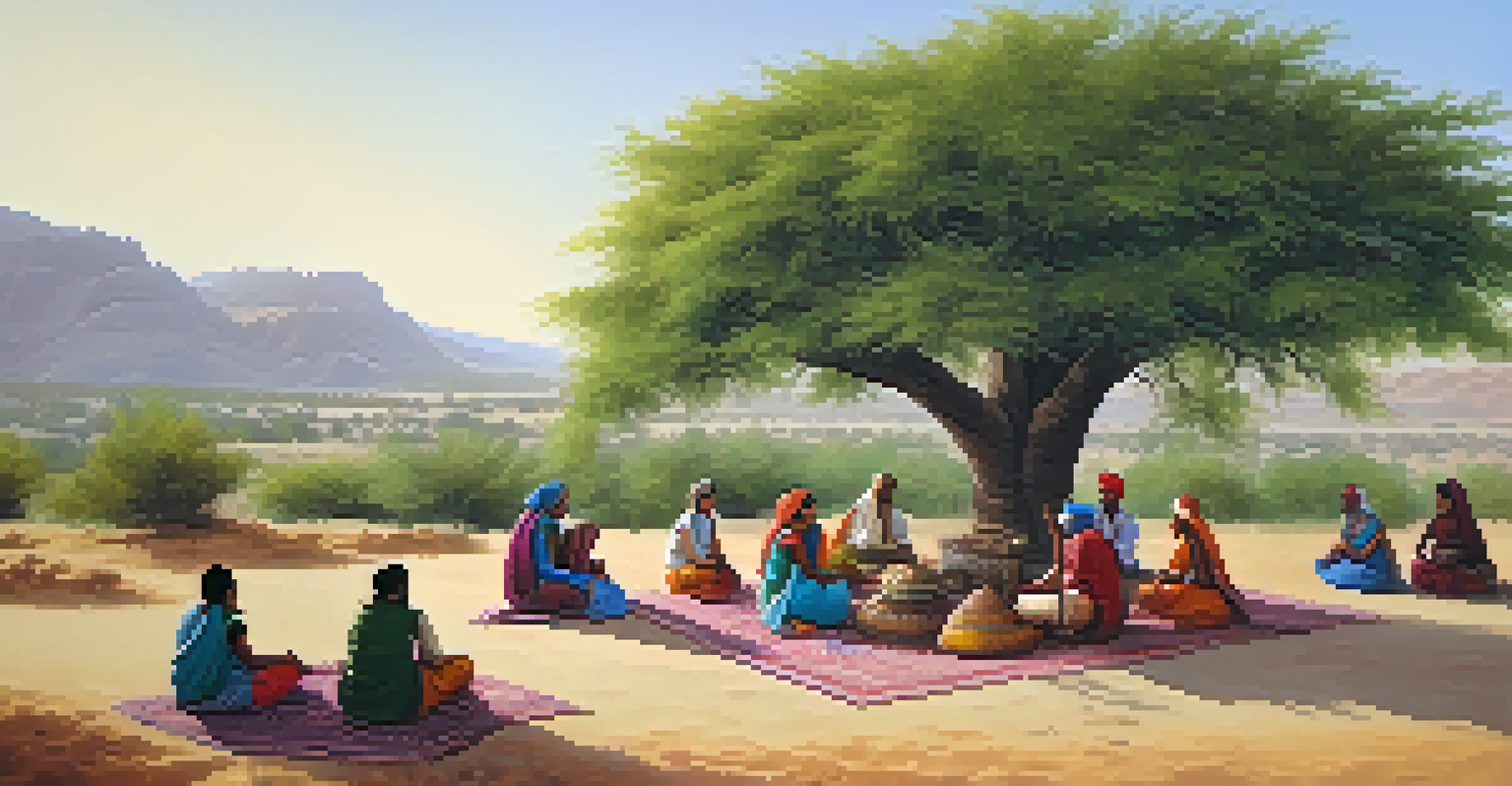Discovering India's Rich Literary Heritage Through Guided Tours

Understanding India's Diverse Literary Landscape
India boasts a rich tapestry of literature that spans thousands of years and multiple languages. From ancient scriptures like the Vedas to contemporary novels, the country's literary heritage reflects its cultural diversity. Each region has its own unique stories and styles, making India's literary scene as varied as its landscapes.
Literature is the most agreeable way of ignoring life.
With over 22 official languages, India's literature provides a plethora of perspectives and experiences. Whether it's the poetic verses of Rabindranath Tagore or the modern narratives of Arundhati Roy, each author offers a window into the socio-cultural fabric of their time. This diversity is an essential aspect to explore when embarking on a literary journey.
Guided tours focusing on literature can help enthusiasts navigate this vast world. They offer insights into the historical contexts, themes, and influences behind various literary works, allowing visitors to appreciate the depth and richness of Indian literature.
The Role of Literary Festivals in Cultural Discovery
Literary festivals, like the Jaipur Literature Festival, play a pivotal role in promoting India's literary heritage. These events gather authors, poets, and readers, fostering discussions that spark creativity and new ideas. They also provide a platform for emerging voices, ensuring that India’s literary scene continues to evolve.

Attending a literary festival offers a unique opportunity to engage with writers and thinkers. Through panel discussions, workshops, and book signings, participants can gain firsthand knowledge about the creative process and the stories behind the stories. It’s an immersive experience that enhances appreciation for literature.
Exploring India's Literary Diversity
India's literature spans multiple languages and regions, offering a rich variety of perspectives that reflect its cultural heritage.
Guided tours often include visits to these festivals, allowing participants to experience the vibrancy of literary discussions. This not only deepens their understanding but also connects them with a community of literature lovers, making the journey even more enriching.
Exploring Literary Landmarks Across India
India is home to numerous literary landmarks that tell the stories of its great authors. Places like the former homes of writers or locations featured in their works provide tangible connections to the literature. Visiting these sites can evoke a sense of nostalgia and inspire a deeper appreciation for the written word.
Translation is not a matter of words only: it is a matter of making intelligible a whole culture.
For instance, a tour of Kolkata, the birthplace of many literary giants, can immerse visitors in the city's literary history. From the streets that inspired Tagore to the cafes where writers gathered, these experiences bring literature to life. Each stop is a chapter in the story of India’s literary heritage.
Guided tours often include these literary landmarks, offering context and anecdotes that enhance the visit. By exploring the physical spaces tied to the literature, participants can gain a richer understanding of the authors' inspirations and the cultural environments that shaped their works.
Discovering Regional Literature Through Local Tours
Each region of India has its own literary traditions, often influenced by local culture and history. From the folk tales of Rajasthan to the poetry of Tamil Nadu, regional literature offers a glimpse into the lives and beliefs of different communities. Engaging with local writers and storytellers can be a rewarding experience for literature enthusiasts.
Guided tours that focus on regional literature allow participants to dive deeper into these local narratives. By visiting small towns and rural areas, travelers can discover lesser-known authors and their works, broadening their literary horizons. This exploration highlights the importance of preserving regional voices within India's literary landscape.
Significance of Literary Festivals
Literary festivals serve as vibrant platforms for discussions, promoting emerging voices and enhancing public engagement with literature.
Additionally, tasting local cuisines and participating in cultural activities during these tours can enhance the experience. It’s a holistic approach that enriches understanding and appreciation of how literature is interwoven with everyday life in various regions.
The Impact of Historical Context on Literature
Understanding the historical context behind literary works offers valuable insights into their meaning. India's tumultuous history, marked by invasions, colonization, and independence, has shaped its literature profoundly. Each literary piece often reflects the socio-political climate of its time, making historical exploration essential.
Guided tours that focus on historical sites, such as museums and battlefields, provide context to the literature. By linking the events of the past with literary movements and themes, participants can grasp the authors' motivations and the societal issues they addressed. This exploration enhances the reading experience.
For example, a visit to the sites of the Indian independence movement can illuminate the writings of authors who documented this pivotal period. Such connections between history and literature create a richer understanding of how the past informs the present.
Engaging with Contemporary Writers and Poets
One of the most enjoyable aspects of literary tours is the opportunity to meet contemporary writers and poets. These interactions can spark inspiration and foster discussions about current literary trends and challenges. Engaging with living authors allows participants to gain insights into their creative processes and the themes they explore in their works.
Many guided tours include author meet-and-greet sessions, providing a platform for personal connection. Asking questions and hearing stories directly from writers can create memorable experiences that deepen appreciation for their craft. It's a chance to see the human side of literature.
Role of Translation in Literature
Translation is essential for making Indian literature accessible, allowing global audiences to appreciate its diverse cultural narratives.
Moreover, these interactions can expose participants to genres and styles they might not have considered before. By broadening their literary tastes, travelers can come away with a more comprehensive understanding of the contemporary Indian literary scene.
The Influence of Translation on Indian Literature
Translation plays a crucial role in making Indian literature accessible to a broader audience. With so many languages spoken across the country, translating works allows readers to experience the richness of various cultures and traditions. This practice not only promotes understanding but also celebrates diversity.
Guided tours often explore the world of translation, highlighting how it shapes literary appreciation. Participants may visit translation workshops or meet translators who share their experiences of bridging linguistic divides. This insight can shed light on the challenges and nuances of conveying cultural context.

Additionally, discussing translated works alongside their original versions can spark conversations about interpretation and meaning. Understanding how translations can differ in style and tone adds another layer to appreciating literature from diverse backgrounds.
Incorporating Technology in Literary Exploration
In today’s digital age, technology plays a significant role in enhancing literary exploration. Virtual tours, online discussions, and literary apps provide new ways to engage with literature from anywhere in the world. For those unable to travel, these tools offer an opportunity to connect with India's literary heritage.
Guided tours can integrate technology by utilizing apps that provide multimedia content, such as audio readings or historical footage. This approach enriches the experience, allowing participants to interact with literature in innovative ways. It also caters to diverse learning styles, making literature more accessible.
India's Literary Diversity Shines
India's literature, spanning various languages and regions, reflects its rich cultural diversity through unique stories and styles.
Moreover, social media has become a powerful platform for literary discussions and community building. Participants can share their experiences, connect with authors, and discover new works, all while fostering a love for literature that transcends geographical boundaries.